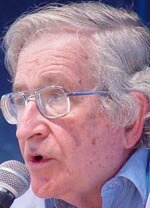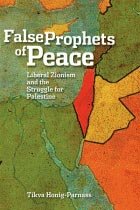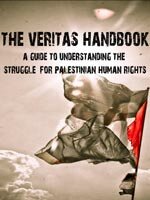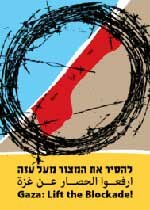Unprecedented ruling states that Migron must be razed by April 2012; Israeli government had admitted outpost was built on lands belonging to Palestinians, but has thus far failed to dismantle it.
Israel-Palestine
I hope that the activists in the Arab countries, especially in Egypt, will realise their vital and deep influence on the Israelis’ motivation to protest.
The great majority of the Israelis demanding affordable housing, even if they may understand the connection, are reluctant to articulate that their economic distress is exacerbated by the cost of the occupation of the West Bank and East Jerusalem and Israel’s military budget for fear that this stance would discredit them politically. Consequently, it may take a long time before a significant number of Israelis are convinced or compelled to abandon their colonial settlement project and share the land between the Jordan River and the Mediterranean Sea with Palestinians on the basis of equality.
A Palestinian financial crisis? Problems with donor countries? Economist Raja Khalidi offers some different explanations for the PA’s fiscal problems.
Anyone who asserts that there is no construction in Israel should peruse OECD data on building beyond the Green Line. 9% of GDP beyond the Green Line comes from construction, compared with 4.7% of GDP within the Green Line. The difference is even greater for residential construction: within the Green Line, residential construction accounts for just over a fifth of investment; beyond the Green Line, it accounts for almost 45%.
The time has come to stick their hand in the fire and fight for all the issues they have steered clear of so far – the security budget, the settlements, the occupation, the breaches of democracy and the rule of capital, without which no real rectification can be made, not even in the cost of rent.
Israeli authorities are suing residents of a makeshift Bedouin village for the cost of repeatedly evicting them and razing “illegal structures” where they live, an official said on Wednesday… An Israeli non-governmental group, Bedouin-Jewish Justice, reported in March that the homes there had been destroyed and rebuilt 21 times since July 2010.
IOA Editor: Dispossession neoliberal-style where the victim is charged for his oppressor’s operating expenses.
For Israel’s housing protest to succeed, it must be defined as political – and it must be translated into political acts. The issues it raises must be placed at the center of Israel’s democratic life. The argument over who gets what must find expression within political parties and elections.
IOA Editor: This domestic Israeli (Jewish and largely middle-class) housing campaign is rapidly spreading and may well threaten the stability of Netanyahu’s government.
However, so far, demonstration activists and their leaders have dealt with the housing crisis outside of any political context. They didn’t discuss the dramatic discrepancy between Israel’s domestic and West Bank housing development policies, let alone make the connection between Israeli governments’ (past and present) high priory for settlement construction and low priority for domestic development – both designed to increase the size of the settlement population. Similarly, they didn’t include Israeli Palestinians — whose community has suffered a far greater housing shortage for decades — in their national campaign.
This ‘missing’ context is a true reflection of the extent of this Israeli-Jewish struggle. It is also likely to constrain the significance of any ‘success’ resulting from this campaign.
Six governments preferred to encourage Israelis to go and live on settlements rather than in the periphery of the country. This had a critical effect on the level of supply in various regions, and therefore on the prices of real estate.
Transportation Minister Yisrael Katz confirmed Monday that the state subsidizes bus tickets within West Bank settlements, causing them to be cheaper than tickets for rides within the Green Line.
IOA Editor: Transportation options and costs are an integral part of household location decisions. Therefore, public transportation subsidies to Jewish residents of illegal West Bank settlements, which reduce the cost of living in the West Bank compared to pre-1967 Israel, constitute yet another incentive for Israelis to become settlers.
What will the Palestinians do at the UN in September? The question appears to haunt Washington and Tel Aviv as they prepare to block Palestinian attempts to obtain UN recognition, as though the very idea of such action represents a form of political impudence that merits the harshest international rejection. Sober accounts by Palestinians of what they may expect from a trip to the UN have done little to allay the dark cloud of suspicion that is fostered in mainstream accounts.
Inclusion of Jordan Valley, northern Dead Sea and area surrounding Ariel in ‘settlement blocs’ whose takeover the IDF Civil Administration is advancing, would prevent establishment of Palestinian state with territorial contiguity… Until now it was not known that the administration, which is a military agency, was charged with distinguishing between the blocs Israel is demanding to annex as part of a final-status agreement and the rest of the settlements.
On 11 July 2011, the Knesset plenum passed the Anti-Boycott Law, which enables the filing of civil lawsuits against those who call for a boycott of the State of Israel or any of its territories (e.g. Israeli settlements). Following the final approval of this law, ACRI has prepared a Q&A document, to explain the legal implications of this law.
We could get in trouble for this. Not in New York City, where this editorial is being written, because legitimate comment is protected under the First Amendment. But our editorials, along with many other stories and columns in the Forward, also appear every Sunday in the English edition of the Haaretz newspaper in Israel. And now, with a new anti-boycott law approved by the Knesset and due to take effect in less than 90 days, the boundaries of free speech and legitimate expression have grown unpredictably and suffocatingly tight.
Ms Zoabi, a vociferous critic of Israeli policies towards the Palestinians, was a passenger on the Mavi Marmara, attracting fury in Israel. She was branded a traitor by colleagues and stripped of some parliamentary privileges… The Knesset’s ethics committee voted to bar Ms Zoabi from parliamentary debates until the current session ends next month, declaring that her actions had “harmed national security and were inconsistent with the legitimate conduct of a lawmaker”.
On July 11th the Israeli parliament passed the controversial anti-boycott law. The law was written in response to the mounting global movement of Boycott, Divestment, and Sanctions (BDS) against Israel and profits from its settlements and industry in the occupied West Bank. The Boycott movement began as a mass Palestinian civil society call, and has been supported from the beginning by some Israelis. The new law bans publicly calling for a boycott, classifying it a civil wrong.
Israeli MP Ahmed Tibi: “What is a peace activist or Palestinian allowed to do to oppose the occupation? Is there anything you agree to?”
Amnesty International’s Deputy Director for the Middle East and North Africa Philip Luther: “Despite proponents’ claims to the contrary, this law is a blatant attempt to stifle peaceful dissent and campaigning by attacking the right to freedom of expression, which all governments must uphold.”
Cindy Corrie: “After more than a year of hearings, we are at this moment in much the same place as we were when they began – up against a wall of Israeli officials determined to protect the state at all costs, including at the expense of truth.”
This is a politically opportunistic and anti-democratic act, the latest in a series of outrageously discriminatory and exclusionary laws enacted over the past year, and it accelerates the process of transforming Israel’s legal code into a disturbingly dictatorial document. It casts the threatening shadow of criminal offense over every boycott, petition or even newspaper op-ed. Very soon, all political debate will be silenced.
Opposition blasts law, which penalizes persons or organizations who call for a boycott of Israel or the settlements, calling it unconstitutional and irresponsible.
High Court rejects petition to put 2 Border Guard officers on trial for death of Abir Aramin, but slams police, prosecution for ‘incomplete’ investigation.
IOA Editor: This is the latest chapter in the struggle of a Palestinian family whose daughter, Abir Aramin, who was murdered by Israeli Occupation forces, as they try to put their personal tragedy in the context of the broader struggle for justice and for Palestinian national liberation.
A retired journalist who covered the intelligence beat, and with extensive senior intelligence sources, reports to Richard Silverstein that Israel is planning to attack Iran before the September UN meeting at which Palestinian statehood will be discussed and possibly approved.
Esther Zandberg: “Although it is termed a preservation effort, it is in effect, paradoxically, an erasure of all memory of the original village.”
Eitan Bronstein: “The message is that we are finishing what we started in 1948.”
Israel’s Air Force on Monday concluded a two-week drill with the Hellenic Air Force as the two nations cemented growing ties between their militaries, recently reflected in Greece’s recent move to halt a Gaza-bound flotilla set to depart from its shores.
Israel’s legal system, despite its reputation for presuming that Palestinian citizens are habitual security offenders, has found Sheikh Salah guilty neither of anti-Semitism nor of directly helping terrorists. So why is Britain being even “more Israeli rather than the Israelis”, as two Arab members of the Israeli parliament caustically observed?
There is no other meaning to a “Jewish state” except the recognition of the legitimacy of granting privileges to Jews in Israel at the expense of Palestinian citizens, annulling the legitimacy of our struggle for real democracy.
Several Israeli ministers have accused the [Israeli] army of “spin” over its claims that activists on board a Gaza-bound flotilla plan to harm Israeli soldiers, Maariv newspaper reported on Wednesday.
IDF officer: “A non-violent protest of 4,000 people or more, even if they only march to a checkpoint or a settlement, and especially if the Palestinian police does not deter them, will be unstoppable.”
On Wednesday, 22 June 2011, Israel held the largest war exercise in its history. The Real News’ Lia Tarachansky interviewed Rela Mazali, the founder of New Profile, an organization working to demilitarize Israeli society, and Alex Cohn, a war resister who served five months for objecting to serve in the army.
Dr. Salem Ajluni: “Without annual external assistance to the tune of about $1 billion from the donor countries, this is not a sustainable situation. I’m not the only one saying this. So is the World Bank, the International Monetary Fund and [Palestinian Prime Minister] Salam Fayyad.”
The 2006 Edward Said Memorial lecture of Adelaide University,Australia, delivered by Tanya Reinhart on 7 October 2006. Tanya Reinhart covers important issues in this lecture: the Nakba in the history of the occupied and the occupier, the choice of armed- vs. unarmed struggle, Israel and South-Africa, the role of international activism, and what can be learned from both Edward Said and Nelson Mandela.
The kit called ‘How do you say Nakba in Hebrew?’ did not receive Israel’s Education Ministry’s approval and most of the teachers using it conceal their source.
The right wing considers recognition of the reality created in 1949 to be the chief enemy of Zionism. The dynamic of a conquering nationalism can never recognize that any situation created at any given time is final.
IOA Editor: Written from an Israeli-centered perspective, Sternhell focuses on the extreme “right” Zionism (Netanyahu, Yaalon, et al), correctly pointing out its dangerous and unstoppable nature. Unfortunately, he lets “mainstream” Zionism (not the subject of this article) go scot-free. In fact, much of what he says about “right wing” Zionism applies equally to “mainstream” Zionism. Perhaps the grass is greener when one conjures up the dream-images of what Zionism-Lite could/should have been. However, for the Palestinians, the harsh reality of dispossession and ethnic-cleansing of the past 100+ years was managed and carried out mostly by “mainstream” Zionism: some 77 years (about 40 years pre-statehood, followed by 37 of the past 63 years of Israeli statehood, including the 1967 war and subsequent occupation and settlement). Therefore, this article is important for the understanding of Zionism, both “right” and “mainstream,” not for the implied, and very limited, differences between them.
Israel exploits the natural resources in the Jordan Valley and northern Dead Sea more than in the rest of the West Bank and prevents Palestinians from using most of the area’s land and water resources.
Despite a long career on the radical left, Spiro said that this is his first arrest. The cause is peculiar: an article he wrote ten months ago. In the article, Spiro wrote that when settlers carry weapons, they ought to be considered as militiamen and therefore legitimate targets. He claimed that Israelis ought not to dictate to Palestinians their methods of struggle against the occupation, but strongly emphasized that he supports a non-violent struggle.





































